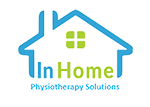
Physical Therapy for Infants With Down Syndrome
Most children with Down Syndrome have delayed mental and physical development. Approximately 45% of newborn babies with Down Syndrome have congenital heart defects, and many children also have an intellectual disability due to Down Syndrome. Although Down Syndrome continues throughout a person’s lifespan, children and adults can improve their ability to perform movement activities and everyday tasks with the help of physical therapists and other health professionals. Physical therapy can help prevent some of the complications of Down Syndrome such as developmental delay, obesity, and lower levels of heat or cardiovascular fitness.
Signs and Symptoms of Down Syndrome
Down Syndrome may be detected during pregnancy by screening or diagnostic tests. The disorder can be detected at birth by the baby’s physical characteristics, if not detected before birth. The symptoms of Down Syndrome generally include physical and intellectual differences that continue into adulthood and can range from mild to severe.
The physical characteristics include:
- Single deep crease across the palm of the hand
- Low muscle tone
- Slightly flattened facial profile, and an upward slant to the eyes
To confirm the diagnosis, a chromosomal analysis will be done to confirm the diagnosis. Babies born with Down Syndrome will have some type of congenital heart disease, which may be noted at the time of birth or soon after. Because the baby has low muscle tone, decreased strength, increased movement at joints, poor balance, posture difficulties, feeding problems, and poor hand use, the baby’s natural development is often delayed.
Additional symptoms as the baby develops include:
- Vision and hearing problems
- Intellectual disability
- Poor language development and language use
- Possible misalignment of bones at the base of the head and compression of the spinal cord
In later childhood and adulthood, people with Down Syndrome may develop other symptoms, such as:
- Obesity
- Poor cardiovascular health
- Low motivation
- Difficulty learning complex movement tasks
- Sleep apnea
- Depression
- Skin disorders
- Early onset of dementia
- Thyroid dysfunction / diabetes
How Can Physical Therapy Help?
Physical therapists will work with the family and other healthcare professionals to reduce or prevent these symptoms. Strong education environments, good medical care include therapy from the preschool through high school and into the adulthood. Support from families can help keep adults with Down Syndrome as healthy as possible.
A child’s physiotherapists will perform an evaluation that includes:
- Birth and Developmental History: The physiotherapists will ask questions about the child’s birth and developmental stages. The age he or she held the head upright, rolled over, sat up, crawled walked, etc. This evaluation will help the physiotherapist to outline a recovery program that will enable the child to perform few activities without much efforts.
- Physical Examination: Measuring the child’s height and weight, observing movement patterns, making hands-on assessment of muscle strength, tone and flexibility, testing child’s balance and coordination are all the things that may be included in the physical examination.
- General Health Questions: A physiotherapist may ask some questions such as – Has your child been sick or hospitalized? Were any health concerns shared with you during that visit? When did you child last visit a physician or healthcare professional?
- Motor Development Tests: Specific tests will be performed to determine the child’s motor development, such as sitting, crawling, pulling up to standing and walking. Your child’s hand use, vision, language skills, intellect and other areas of development may also be screened by the physical therapist.
Depending on the necessity, your physiotherapist may refer you to other healthcare professionals who can participate in a team effort to address the child’s needs. A physical therapist is an important partner in the healthcare and fitness aspect of your child’s development. The therapist helps people with Down Syndrome to gain strength and movement to function at their best throughout all stages of life.






